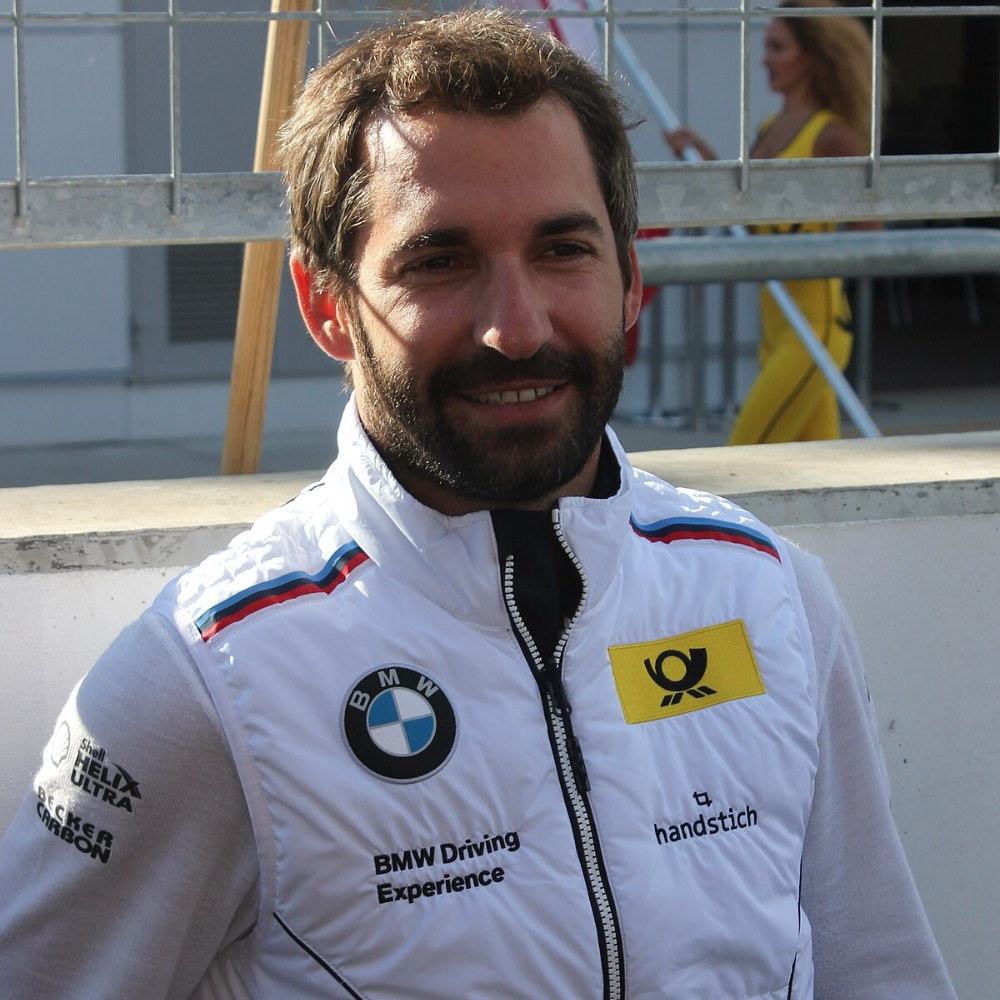
Timo Glock
Career Statistics
Biography
Timo Glock (born 18 March 1982) is a German former racing driver who competed in 91 Formula One World Championship Grands Prix between 2004 and 2012, achieving three podium finishes and 51 championship points while driving for Jordan, Toyota, Virgin, and Marussia, though he is best remembered not for his solid if unspectacular Formula One career but for his dramatic role in the final moments of the 2008 Brazilian Grand Prix when Lewis Hamilton passed Glock's slowing Toyota on the last corner of the last lap to claim the fifth-place finish that gave Hamilton the World Championship by one point over Felipe Massa, making Glock an unwitting central figure in one of Formula One's most dramatic title deciders and subjecting him to years of conspiracy theories and abuse from Brazilian fans who believed he deliberately allowed Hamilton past.
Born in Lindenfels, Bergstraße, Hesse, Germany, on 18 March 1982, Glock began his motorsport career at age 15 in 1997, and he won several karting championships before progressing to car racing, winning the BMW ADAC Formula Junior Cup in 2000 and the Formula BMW ADAC Championship in 2001, establishing himself as one of Germany's brightest young racing prospects. Glock progressed through Formula 3 and Formula 3000 during the early 2000s, and his strong performances attracted Formula One attention, leading to his signing as Jordan Grand Prix's test driver for 2004, and when the team needed a replacement for Giorgio Pantano mid-season, Glock was promoted to race driver for the Canadian Grand Prix.
Glock's Formula One debut at the 2004 Canadian Grand Prix saw him finish 11th initially, but he inherited seventh place following the disqualification of Williams and Toyota cars for technical irregularities, scoring two championship points on his debut, though this would prove to be his only race for Jordan as the team became Midland for 2005 and Glock lost his seat. After losing his Formula One race seat, Glock spent 2005-2007 competing in GP2 Series and Champ Car, winning the 2007 GP2 Championship and re-establishing his Formula One credentials, and Toyota signed him for 2008 to replace Ralf Schumacher, giving him a three-year contract and his first opportunity to compete for a competitive midfield team.
The 2008 season with Toyota brought Glock his best Formula One results, as he scored his first points at the Canadian Grand Prix with fourth place ahead of Felipe Massa's Ferrari, qualified a career-best fifth at the Hungarian Grand Prix, and finished second in Hungary behind Heikki Kovalainen's McLaren, achieving his first Formula One podium and establishing himself as one of the season's surprise performers. The 2008 Brazilian Grand Prix at Interlagos on 2 November 2008 brought Glock his most famous and controversial moment in motorsport: with a few laps remaining, he was running seventh when light rain began falling, and while most drivers pitted for wet tires, Glock gambled on staying out with dry tires, hoping the rain would remain light enough that he could maintain track position, but as the final lap progressed, his dry tires lost grip on the increasingly wet circuit.
As Glock struggled around the final lap, Sebastian Vettel passed him for sixth place, and then at the final corner—Juncão—Lewis Hamilton, who needed fifth place to win the championship, caught and passed Glock's dramatically slowing Toyota, moving from sixth to fifth and winning the World Championship by one point over Felipe Massa, who had won the race and briefly believed he had won the title. Glock's role in Hamilton's championship sparked immediate conspiracy theories among Brazilian fans and media, who accused Glock and Toyota of deliberately allowing Hamilton past to ensure a British rather than Brazilian World Champion, and despite Glock's repeated explanations that his dry tires simply had no grip in the wet conditions and he did his best to maintain position, the abuse continued for years.
Years later, Glock revealed that he and Toyota team members required police escort to leave Brazil after the race due to threats and abuse from angry Brazilian fans, and the trauma of being falsely accused of race-fixing and subjected to death threats affected him deeply, making the 2008 Brazilian Grand Prix a bittersweet memory despite being one of Formula One's most dramatic moments. The 2009 season with Toyota saw Glock continue as a solid midfield performer, finishing tenth in the World Championship, and he scored another podium with third place at the Singapore Grand Prix, but Toyota announced at the end of 2009 that they were withdrawing from Formula One due to the global financial crisis, leaving Glock without a competitive drive.
For 2010, Glock moved to the new Virgin Racing team, which was struggling with uncompetitive cars designed using computational fluid dynamics without wind tunnel testing—an experiment that failed spectacularly—and he spent 2010-2012 fighting at the back of the grid for Virgin (later renamed Marussia), occasionally showing flashes of speed but never able to challenge for points. On 21 January 2013, it was confirmed that Glock had left Marussia by mutual consent, ending his Formula One career after nine seasons and 91 race starts, and he transitioned to DTM touring car racing where he competed through 2020, achieving greater success than in his later Formula One years. Timo Glock's Formula One legacy is complex: his statistics—91 starts, three podiums, 51 points—suggest a solid midfield driver who showed flashes of talent without achieving sustained success, but he will forever be remembered as a central figure in one of Formula One's most dramatic championship conclusions, and the conspiracy theories, abuse, and trauma he suffered following the 2008 Brazilian Grand Prix serve as a reminder of the darker side of Formula One fandom and the dangers of social media-fueled mob mentality that can destroy lives based on false accusations and refusal to accept that sometimes racing circumstances rather than conspiracies determine championship outcomes.